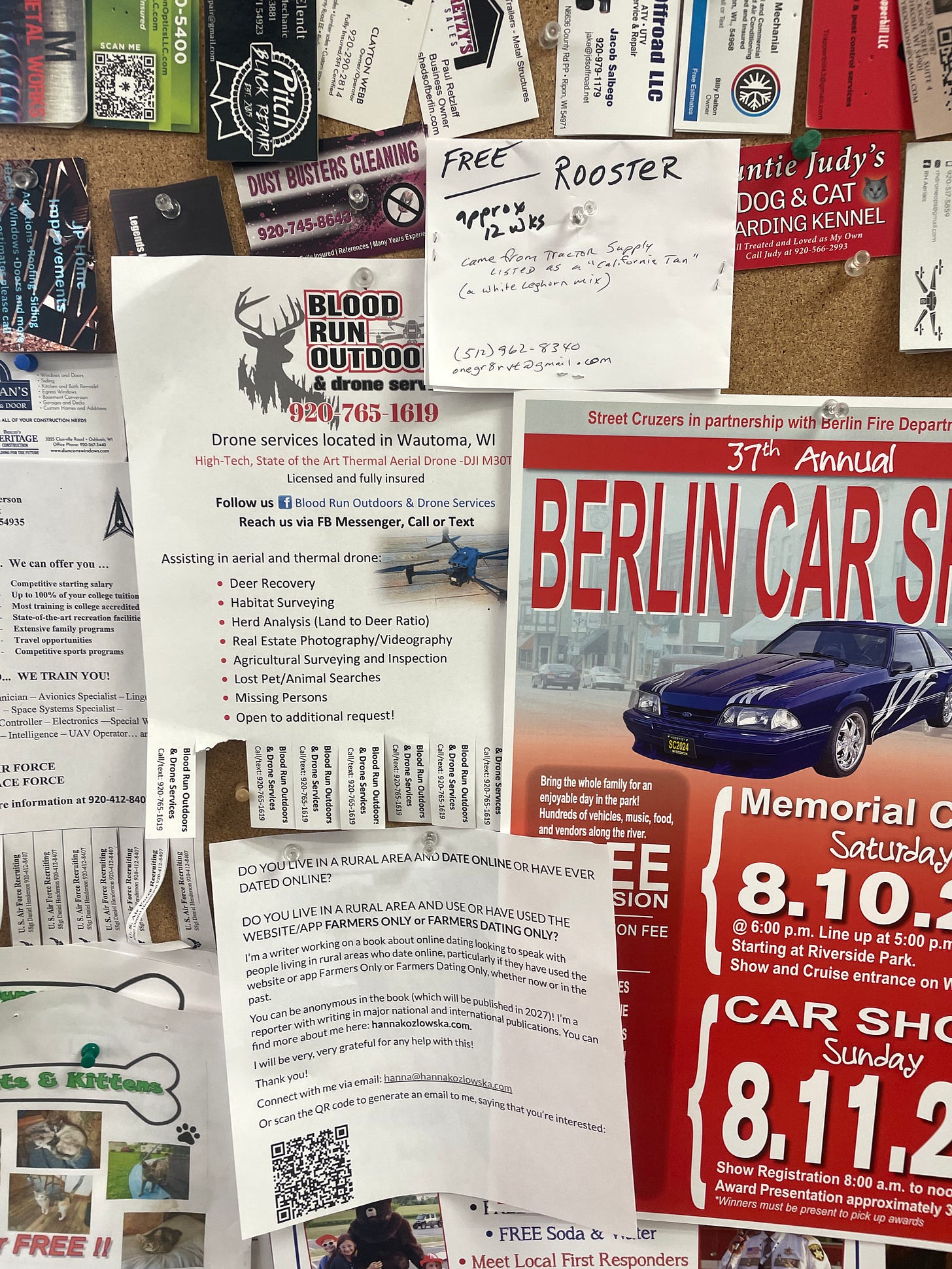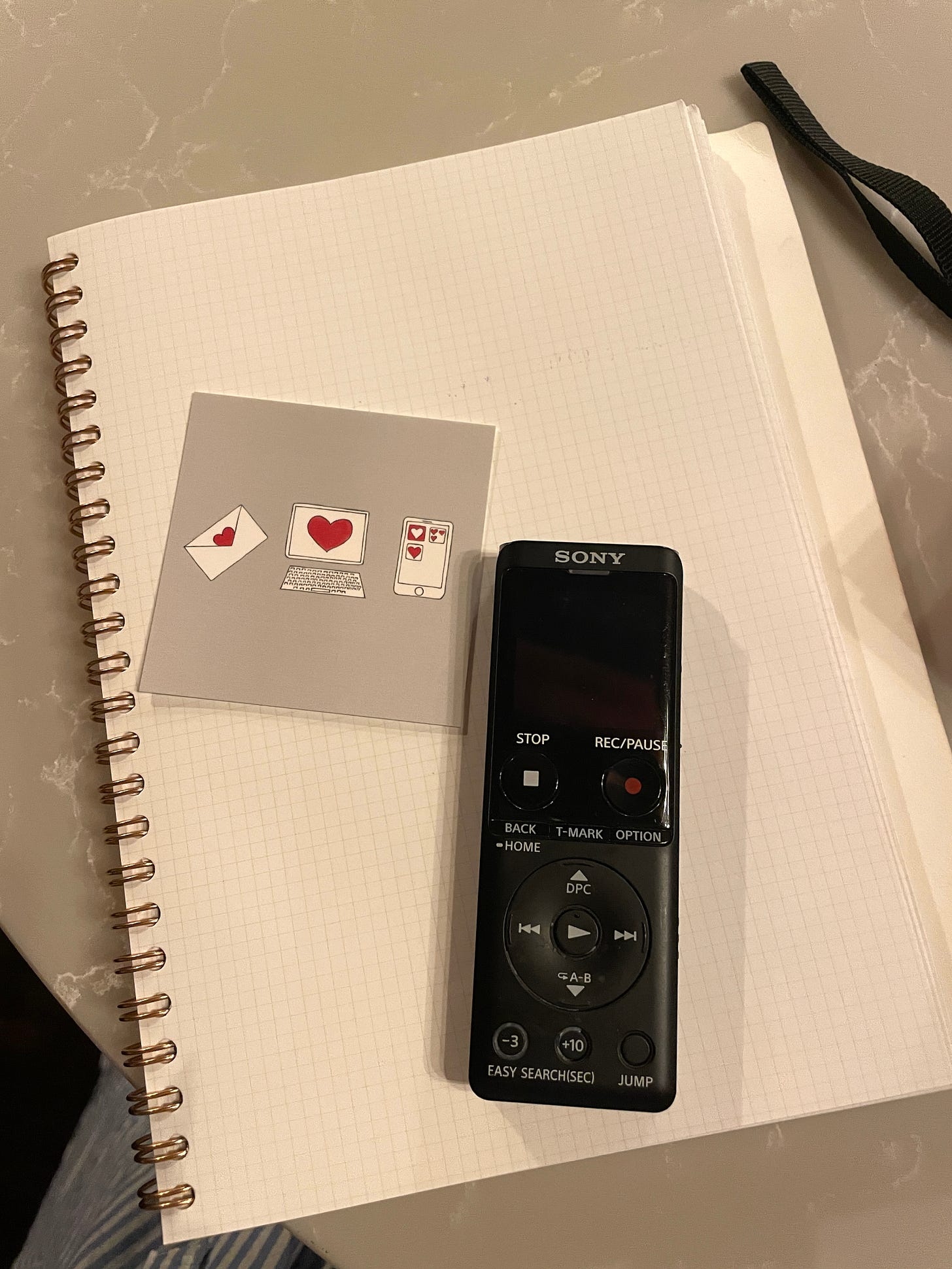
Hunting for sources sometimes feels like the greatest kind of detective work. One time, while working on a big investigation, I spent way too much time on the Google Maps view of a small town, looking for the local hangout bar and church to call to try to find a person who I only had identified by age, previous occupation, and the fact that she was raising a granddaughter on her own (all this from a tweet). It didn’t work, but going person-by-person in LexisNexis and doing some fun triangulation with a couple of colleagues sure did. Another time, the old method of sending a source I didn’t have a phone number for a physical letter in the mail was actually successful and felt like winning the lottery. And then there are the (so many) other times when I felt like I could never find the right person to speak to and it would be the end of me and my career.
My book – a social history of online dating – spans over a century, and is largely rooted in interviews with regular people, not experts whose emails are available on their universities’ websites, executives I can reach out to through their flacks, or former employees of a company who I can try to connect with via LinkedIn.
As a newsgathering operation of one, I have to be very, very creative when it comes to finding sources. And because I don’t gaslight girlboss gatekeep, I’m about to tell you just how I’ve done it thus far, finding more than 60 people from various online dating eras and from all sorts of different corners of the world.
As I am both completely crazed and sapped with a big house move this week, I am going to do this in list form, and I hope readers forgive me for the lack of a creative structure.
So, here goes: How do I find people to talk to?
Daters of the past
I’ve interviewed multiple people who were in their prime dating years in the 1960s, 70s, and 80s. I’ve found them through:
Media coverage from the time. It’s very fun to contact someone 50+ years after they were first interviewed by a reporter to re-interview them on the same subject. The issue that I ran into here is that women from that era almost always changed their names, so men were much easier to find. For this method, Newspapers.com is your friend. Also, did you know that the entire catalog of Life magazine archive is digitized?
Obituaries. This is a sad one. It turns out obituaries often include how the deceased met their spouse, which is extremely moving, and unfortunately very handy for me. It’s how I found the charming Jeff, who (then 80) lives in a nursing home.
College alumni associations and alumni magazines. This is a method that works like a charm if you’re looking for people who went to a specific college or a specific type of college (say, fancy school on the East Coast). This tack helped me get in touch with some members of class of ‘65, which has resulted in absolutely delightful conversations (I even placed ads in the “class notes” sections of alumni magazines!).
Friends’ parents. If I’m looking for an older source, this is often my first step. You never know who did some fun strange thing in their youth!
Online forums. You may be thinking, “duh,” but I’m not talking about Reddit here (although Reddit is an amazing source trove). Scouring hackernews and some 1990s-looking special interest sites was more productive than I thought.
The tried and true: creative googling. Honestly, going to the very end of search results, or typing in inventive search prompts into the old search bar has yielded some great results. I found Leslie (then 71) for example, from her cooking blog, because at some point she wrote there about how she met her partner.
Daters of today
Social media callouts. This is a tricky one, because it does yield responses, but a) you don’t want to do it so often that you’re annoying your followers b) you don’t want to have a sample skewed toward friends-of-friends if your following isn’t very big. It becomes a bit of an unrepresentative bubble.
The cesspool of the internet aka the comment board (jkjk). I’ve found it INCREDIBLY useful to ask for sources in a newsletter comment board. Don’t just go doing this willy nilly, though. In my case, the author was hosting a community announcement thread, and I’d asked for their permission to post my callout beforehand. I’m not going to blow up their spot, but it might be smart to think about which newsletters your sources may be reading.
Physical flyers. One of my first tactics was to put up a flyer in… on the door of a coffee shop bathroom. I got so many emails! A popular tattoo artist from a studio next door to the coffee shop very kindly and unprompted posted a pic of the flyer on her Instagram and that also proved highly effective. Much less successful was my idea to put up flyers looking for people dating on the app/site Farmers Only (which is exactly what it sounds like) on notice boards at tractor supply shops across the Midwest while on a road trip. In Indiana, my plea, decked out with a QR code, was posted their next to a flyer with “8 ewes 1 ram for sale,” while in Wisconsin it’s neighbor was a “farmhand needed” notice.
Going to events. This is another big “duh” situation, but what I’ve learned here is that people will not follow up with you after you give them their card, you MUST ask them for their contact information (you’d think I should remember this after being a journalist for more than a decade!). The interviews I need for my book are not simply quick“man on the street” interviews, I actually need to have long, considered conversations. A speed dating event or a singles running club are not the best venue for this (also, these people are not there to talk to me, but to find the love of their life!). Get those digits, no matter how cute your business card is.
Since we’re here talking about this…
I still have to interview a ton of people, but I have some particularly urgent gaps in sourcing, so why not ask you all if you know anyone who’d fit the bill? I’m looking for folks who:
a) Date/dated on Farmers Only!
b) Did video/VHS dating (like Great Expectations) in the 1970s or 80s
c) Dated online EARLY, like between 1995 and 2000
d) Met through a Dial-Your-Match or other romantically-geared BBS board
e) Met through a classic, newspaper personal ad (ideally before 1995)
Help a girl out!
Also, what’s the most creative/strange way you’ve found your sources? Let me know in the comments!





